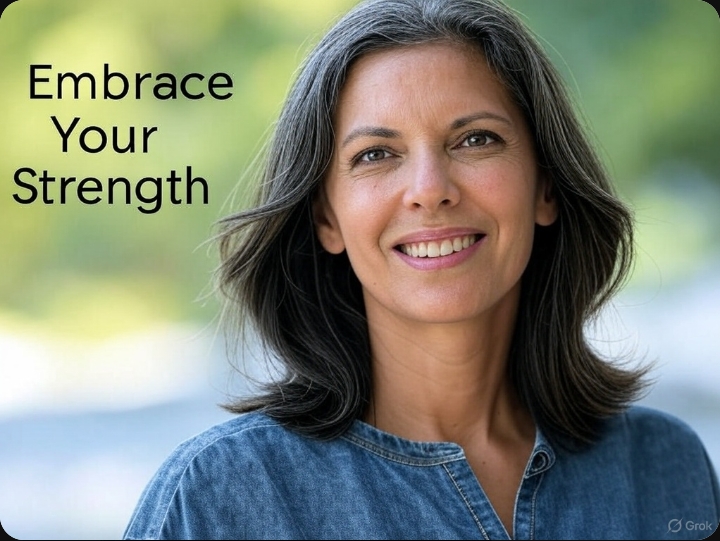Menopause is often regarded as a physical transition, but its profound impact on mental health is equally significant. From mood swings to brain fog, this stage of life can leave women feeling confused, isolated, and overwhelmed. This blog dives into the raw questions women are too afraid to ask and provides actionable solutions to help them thrive.
- “Why do I feel like I’m losing my mind? Is this normal?”
Real-life example: Sarah, 49, a project manager, found herself forgetting deadlines and crying uncontrollably over minor setbacks. She thought she was failing at life—until she learned how declining estrogen affects brain fog and mood swings.
Science: Estrogen plays a critical role in serotonin and dopamine production. Its decline during menopause can lead to anxiety, depression, and memory lapses12.
Common mistake: Blaming yourself instead of recognizing hormonal shifts.
Fix:
- Prioritize sleep—low estrogen exacerbates insomnia4.
- Incorporate omega-3s and mindfulness practices to reduce brain fog2.
- Seek support from a menopause-aware therapist who understands these hormonal changes1.
- “I snap at everyone—even my dog. Am I turning into a monster?”
Real-life example: Maria, 52, yelled at her husband for loading the dishwasher “wrong.” Later, she sobbed in shame—but irritability is a classic perimenopause symptom.
Science: Cortisol spikes combined with progesterone drops shorten your emotional fuse5.
Common mistake: Suppressing emotions until they explode.
Fix:
- Practice the “pause-breath-label” technique: name your emotion before reacting6.
- Adaptogen herbs like ashwagandha or rhodiola can stabilize stress responses2.
- Communicate openly: “I’m feeling hormonal right now; I need some space”5.
- “I’m exhausted but can’t sleep. Will I ever feel rested again?”
Real-life example: Linda, 50, woke up drenched in sweat three times a night and relied on coffee to function—which only worsened her anxiety.
Science: Night sweats disrupt REM sleep, while caffeine amplifies cortisol levels35.
Common mistake: Using stimulants instead of addressing root causes.
Fix:
- Cool your bedroom to 65°F (18°C) and wear moisture-wicking pajamas4.
- Take magnesium glycinate before bed for deeper sleep2.
- Swap coffee for matcha—its lower caffeine content and calming L-theanine help reduce jitters3.
- “My libido is dead. Is my sex life over?”
Real-life example: Emma, 48, avoided intimacy due to painful dryness, fearing her partner would leave. Spoiler: They didn’t—she sought help and rekindled her relationship.
Science: Low estrogen thins vaginal tissues and stress diminishes desire67.
Common mistake: Suffering silently out of shame.
Fix:
- Use hyaluronic acid moisturizers (e.g., Revaree) for comfort during intimacy4.
- Try sensate focus exercises to rebuild emotional connection through non-sexual touch6.
- Explore hormone replacement therapy (HRT) or testosterone creams if medically safe for you7.
- “Why is no one talking about this? I feel so alone.”
Real-life example: Aisha, 47, spent years Googling symptoms until she found a Facebook group where women shared identical struggles.
Truth: Societal stigma silences women; many doctors dismiss symptoms as “aging”8.
Common mistake: Isolating instead of seeking community.
Fix:
- Join online forums like Menopause Matters or Reddit’s r/Menopause for peer support48.
- Advocate for better care by requesting full hormone panels from your doctor—not just TSH tests1.
- Share your story publicly—it helps normalize the conversation and empower others6.
Thriving Through Menopause
Menopause doesn’t have to be an isolating experience filled with unanswered questions. By understanding the science behind these challenges and implementing practical solutions, women can reclaim their mental health and thrive during this transformative stage of life.
Remember: menopause is not just a physical journey—it’s an emotional one too. Prioritize self-care, seek professional advice when needed, and connect with communities that understand your struggles. You’re not alone in this transition!
https://payhip.com/affordableheal



